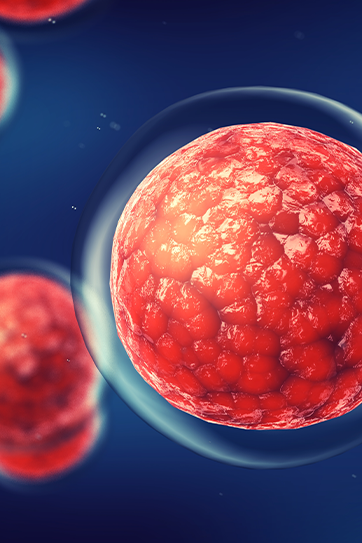Bone marrow transplant is a medical procedure commonly used to combat severe blood diseases, especially conditions like leukemia, lymphoma, and myeloma.
Bone marrow transplant has a long history in Turkey, spanning over several decades. Our healthcare system has continuously evolved and strengthened in parallel with technological and scientific advancements in this field. Experienced surgeons and specialized teams perform kidney transplant operations, significantly improving patients' quality of life.
Bone marrow transplantation is considered a treatment option for individuals facing various health challenges. It is primarily considered for individuals with severe health problems who have not responded to other treatments. Bone marrow transplant is commonly used to treat blood cancers such as leukemia, lymphoma, and myeloma. In these cancers, the bone marrow cells may lose their normal function or be replaced by cancerous cells.
Bone marrow transplant allows healthy bone marrow cells to be transplanted into the recipient, enabling the patient to produce healthy blood cells. Additionally, bone marrow transplantation may be considered when other treatment options have failed or have not yielded sufficient results. Specifically, if the disease progresses or recurs despite other treatments such as chemotherapy or radiation therapy, bone marrow transplantation may be considered as an alternative solution.
The pre-bone marrow transplant process involves evaluating the patient's condition and making necessary preparations for a successful transplant. This critical stage includes a series of tests, evaluations, and preparations. The patient's overall health status is evaluated to determine their eligibility for bone marrow transplantation. Factors such as age, general health status, and response to previous treatments are considered.
Donor compatibility is checked. If an allogeneic transplant is planned, finding a suitable donor is crucial. The donor is usually selected from among family members, and genetic compatibility tests are performed.
High-dose chemotherapy or radiation therapy may be administered to the patient before the transplant process. These treatments aim to destroy existing bone marrow cells and control the disease. However, their side effects must be carefully considered and planned.
Laboratory tests are performed to assess the patient's overall health status. Blood tests, liver and kidney function tests, etc., are important in determining the patient's suitability for bone marrow transplantation. The patient's medical history, previous treatments, and medications used are reviewed. This information is crucial for planning the transplant process and preventing possible complications.
Bone marrow transplantation can be performed in different ways. These transplant procedures are primarily categorized as autologous (using the patient's cells) and allogeneic (using cells from another person).
Bone marrow transplant, despite its various advantages, can also bring some potential complications. These complications are usually related to the transplant process, immunosuppression, and treatment methods such as high-dose chemotherapy or radiotherapy. Firstly, infections can be a common complication after bone marrow transplantation. During the transplant process, the immune system is suppressed, which can make the patient's body vulnerable to infections. This can lead to bacterial, viral, or fungal infections.
Graft-versus-host disease (GVHD) is a complication that can occur after allogeneic bone marrow transplantation. The recipient's body recognizes the donor cells as foreign and has an immune response against them. This can affect the skin, liver, and intestines and can be serious. Cell rejection is a condition that can also occur after allogeneic transplantation. The recipient body recognizes the transplanted cells as foreign and initiates an immune reaction against them. This can lead to rejection of the transplanted cells and failure of the transplant. Contact Medwide for more information.




Get practical information about the topics you are most curious about. Everything you need to make informed decisions on your beauty and health journey is here with all the details from A to Z.
Cord blood stem cells are collected from the blood vessels in the placenta and umbilical cord during labor. This is done after normal delivery or during a cesarean section. After the baby is born, the placenta and umbilical cord are cut and the blood is collected in a special procedure. The stem cells in this cord blood can be stored in banks to be used in the treatment of various genetic and blood diseases.
Semi-matched stem cell transplantation is a method used in allogeneic stem cell transplantation. In this type of transplantation, if the tissue types of the donor and recipient are incompatible, half-matched (half-allogeneic) transplantation may be preferred. However, this may affect the transplant success. In half-matched transplants, the risk of graft-versus-host disease (GVHD) may increase and problems with the immune system may occur after transplantation. Therefore, pre-transplant tissue compatibility is important, but the chances of success may vary depending on several factors.
Bone marrow harvesting is usually a surgical procedure and is usually painless. The bone marrow is usually collected by aspiration or biopsy from the back of the pelvic bones. Local anesthesia or general anesthesia is used during this procedure, which ensures that pain is minimal. After the operation, there may be mild pain or discomfort for a few days, but this can usually be controlled with pain management during this time. Each patient may be different, but in general, bone marrow harvesting is planned for pain management and patient comfort.
Medwide meticulously arranges airport transfers for patients and their companions, ensuring their comfort and satisfaction.
Medwide's VIP transfer service offers patients a personalized and privileged travel experience, providing exceptional service.
Medwide transports patients and their companions comfortably and luxuriously, making their journeys enjoyable and relaxing.
Medwide offers quality healthcare services to patients at affordable prices, ensuring transparency and fairness in costs.
Medwide provides fast treatments by reducing patient wait times, our expert doctors promptly respond to our patients' needs.